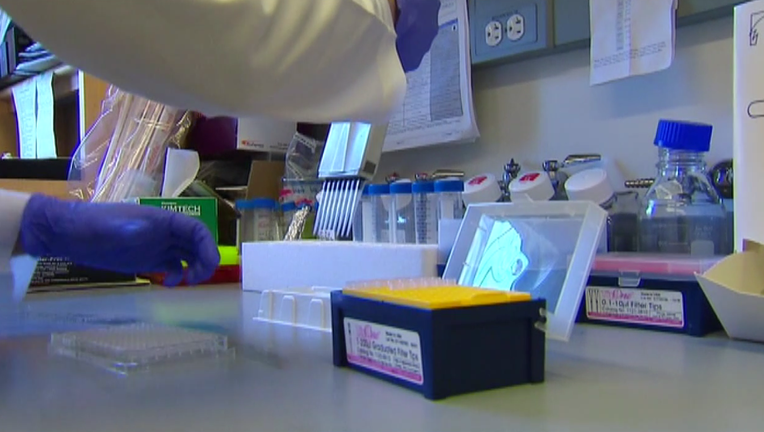Researchers working to fast-track a COVID-19 vaccine

MINNEAPOLIS (FOX 9) - Finding a vaccine to treat the highly contagious COVID-19 has become the top health priority around the world, putting researchers and pharmaceutical companies in a mad dash to come up with an injection that's safe and effective.
“I’m amazed at just how quickly some of these trials have ramped up, so that’s good news,” said Marc Jenkins, the director of microbiology and immunology at the University of Minnesota Medical School. “I think there will be pressure to reduce some of the regulatory guidelines but I think the system will stick to its guns to some degree.”

Researchers working to fast-track a COVID-19 vaccine
Finding a vaccine to treat the highly contagious COVID-19 has become the top health priority around the world, putting researchers and pharmaceutical companies in a mad dash to come up with an injection that's safe and effective.
There are several companies behind at least two potential vaccines and a third passive vaccine that seems to be the most effective.
“They still have to follow FDA protocols and so I think that’s good news,” said Jenkins. “That’s good for people and that’s good for the science because if we do a sloppy trial we don’t get any answers.”
However, the process of creating a viable vaccine is long. The approval from the Food and Drug Administration is required before the vaccine can be deployed to the general population, but officials are speeding that up.
There are then three phases of testing. Currently, it’s in Phase 1 after several people in the Seattle area volunteered to be tested.
“It’s very likely that an effective vaccine will work through antibodies, so these people will have their blood drawn and we’ll know whether that vaccine will begin to make antibodies and if so, that’s a good sign,” he said.
Another promising sign of beating this pandemic is the herd immunity it might create to communities once most of the general public eventually gets it.
“Most of the virus genomes that have been sequenced from patients so far, the virus look almost identical, so that might suggest the virus is going to have a hard time creating a lot of variants of itself—that’s good news,” said Jenkins.
Herd immunity basically means that if enough people get the virus they will become immune and the outbreak will eventually fizzle out. That has happened with other infectious diseases like chicken pox and polio.

